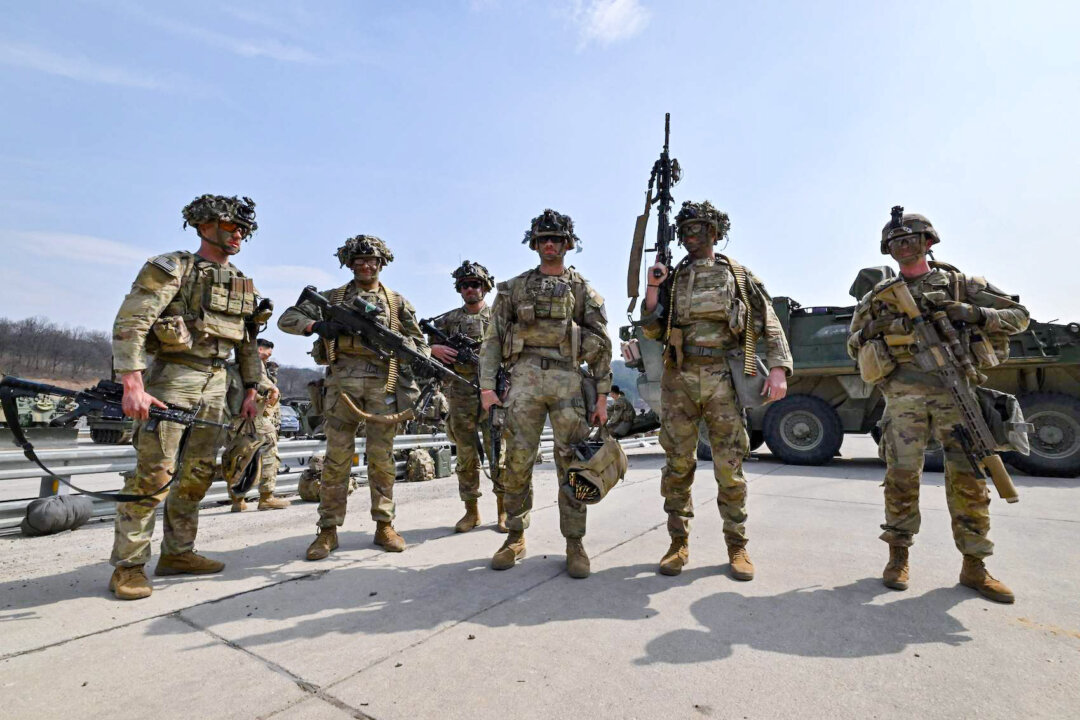North Korea condemned the U.S.–South Korea joint drills as ‘the most offensive and provocative war drills for aggression in the world.’
South Korea and the United States began a large-scale joint military drill on Aug. 19 that’s focused on enhancing their combined defense posture against North Korean threats.
South Korea’s Joint Chiefs of Staff (JCS) said the annual Ulchi Freedom Shield exercise, running until Aug. 29, will include computer-simulated exercises and field training, including live-fire drills.
The drills will reflect “realistic threats across all domains,” including North Korea’s missile threats, GPS jamming, cyberattacks, and lessons learned from recent armed conflicts, according to the JCS.
The two allied nations aim to enhance their armed forces’ “capability and posture to deter and defend against weapons of mass destruction,” the JCS said in a statement.
About 19,000 South Korean troops will participate in the drills, which will feature 48 rounds of combined field training, Yonhap News Agency reported. The number of participating U.S. troops has not been specified.
In a statement carried by North Korea’s state-run Korean Central News Agency, the Institute for American Studies of the North Korean Foreign Ministry condemned the U.S.–South Korea joint drills as “the most offensive and provocative war drills for aggression in the world.”
The institute accused the United States and South Korea of “escalating regional military confrontation” and vowed that North Korea will make efforts “to change the security environment of the Korean Peninsula and the region in our favor.”
North Korea has long denounced joint drills by the United States and South Korea as a rehearsal for invasion, despite both allied nations repeatedly saying that the drills are for defense.
Last month, North Korea launched two ballistic missiles—one of which South Korea said may have failed—after the United States, South Korea, and Japan completed their first multi-domain trilateral exercise.
That trilateral drill was launched after North Korea and Russia signed a “strategic partnership” pact that allows each party to provide military assistance if either one of them is attacked. The United States, South Korea, and Japan expressed “grave concern” over the defense pact.
Pyongyang also has sent trash-filled balloons toward South Korea in recent months, prompting Seoul to suspend a 2018 military deal that was originally meant to ease tensions between the two countries.
In recent years, North Korea has carried out more than 100 weapons tests, which involved various missile systems, including long-range missiles capable of striking the United States and its Asian allies.
The United States and South Korea signed nuclear deterrence guidelines on July 11, and Washington affirmed its commitment to use the “full range of U.S. capabilities,” including nuclear, to defend its ally.
The United States has persisted in seeking “direct talks” with North Korea without preconditions in favor of a diplomatic solution for denuclearization. North Korea has rebuffed these efforts.

